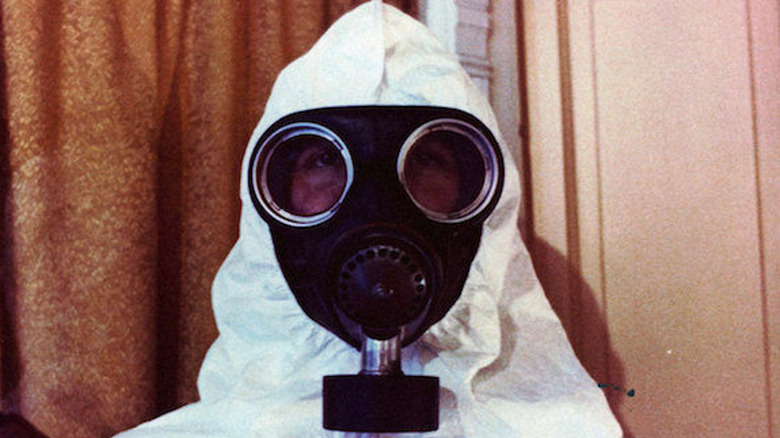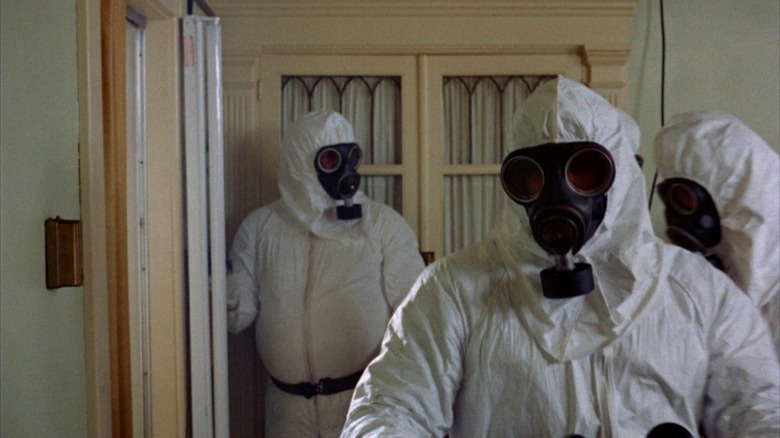The Crazies Never Reached The Scope George Romero Had Originally Hoped
George Romero is widely known as the director responsible for creating the idea of the modern zombie, thanks to the continuing cultural impact of 1968's "Night of the Living Dead." Arguably, he could also be credited for starting the trend of pandemic films with his 1973 military thriller "The Crazies." Shot on what would be considered a shoestring budget today, Romero managed to tell a sprawling story about a mysterious biological weapon codenamed "Trixie" that infects a small town's water supply, driving them all totally insane. If you look at "The Crazies" as being patient zero, pandemic-themed entries like "Outbreak" and Steven Soderbergh's frighteningly realistic account in "Contagion" can be traced directly back to Romero's take on the subject.
"The Crazies" was made just about the time Vietnam was coming to an end, but the country had already been living with an unjust war for the better part of a decade. The distrust of the military, in general, became the main catalyst for the story and "Trixie" served as a substitute for napalm and Agent Orange. The horrific effects of those weapons had been blasted all over the television screens of millions of concerned Americans. Originally, Romero wanted to tell a large-scale story about how those responsible for these weapons of death wound up being the very same people tasked with cleaning up their own mess. To keep total creative control, his vision had to be compromised in order to get financed.
We're stuck with each other
During a conversation celebrating the 45th anniversary of "Night of the Living Dead" as part of the British Film Institute's Gothic season, Romero shined a light on the struggles to give "The Crazies" the kind of grand scale he initially envisioned. "Originally I had written it bigger in terms of the script," explained Romero, "but the finance company wouldn't do it unrated. They said, 'We'll pay to shoot this, but it's going to cost a little bit too much to risk releasing it without a rating', so they asked if we could do it for $3 million."
Even if you trusted the savvy audiences of the seventies to show up, putting out an unrated film was always a gamble. Romero didn't flinch and managed to still get his message out without too much compromise (via Electric Sheep):
"I chose then to go for the unrated version and cut the script back. It's essentially exactly what it was and that's the theme of it: that the military that caused the infestation are preventing the people who were trying to cure it from solving the problem.
"The Crazies" has gone on to have an incredible shelf life, independent of Romero's "Dead" films. Breck Eisner's underrated remake starring Timothy Olyphant was a box office success and helped cement Romero's legacy outside of the zombie classics. 1985's "Day of the Dead" continued the themes of "The Crazies" and drove home the idea that when the world ends, we might be stuck with the people who caused the apocalypse. In what would be an unfortunate trend in a storied career, Romero would continue to have trouble getting projects financed that didn't include the words "...of the Dead" in the title.

